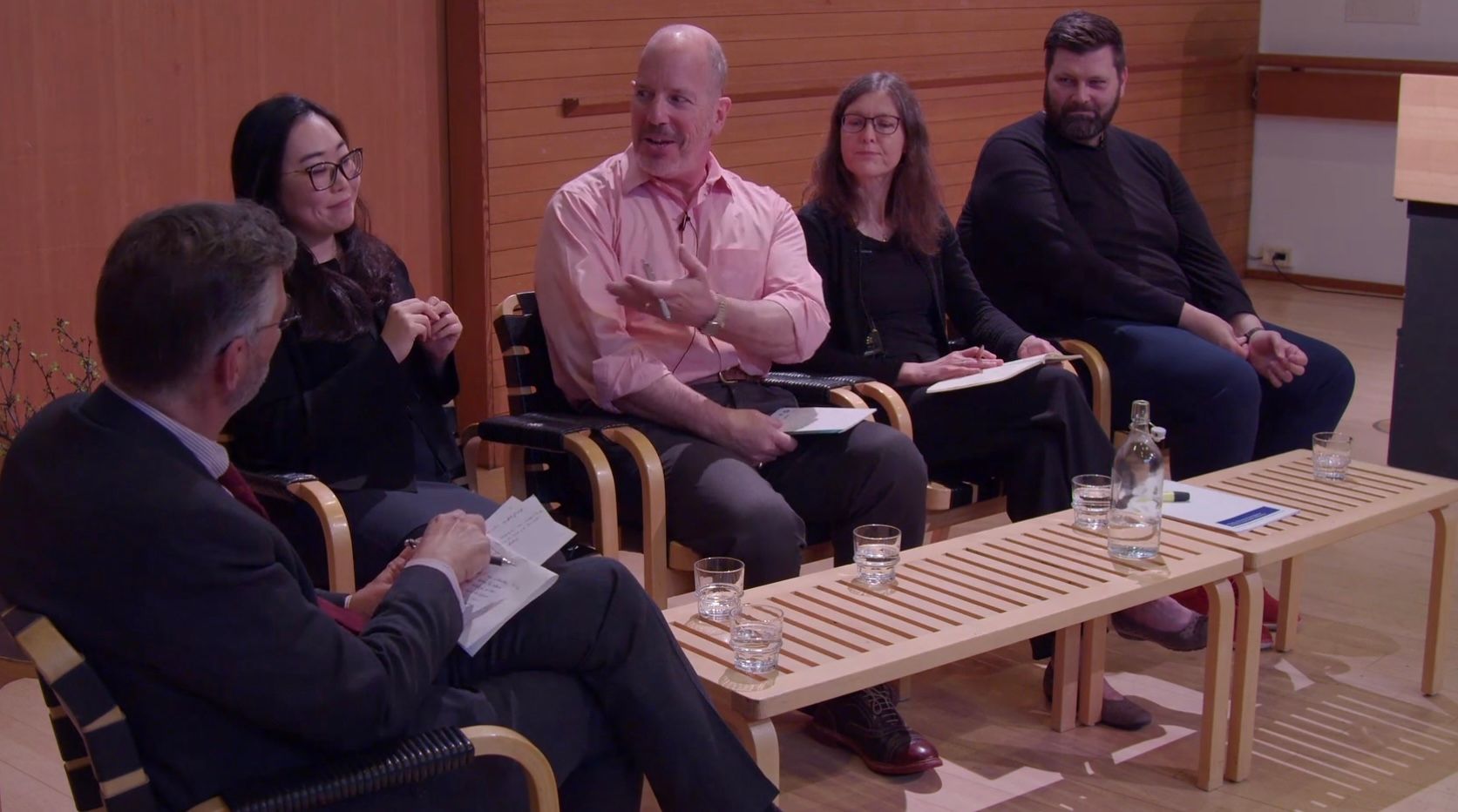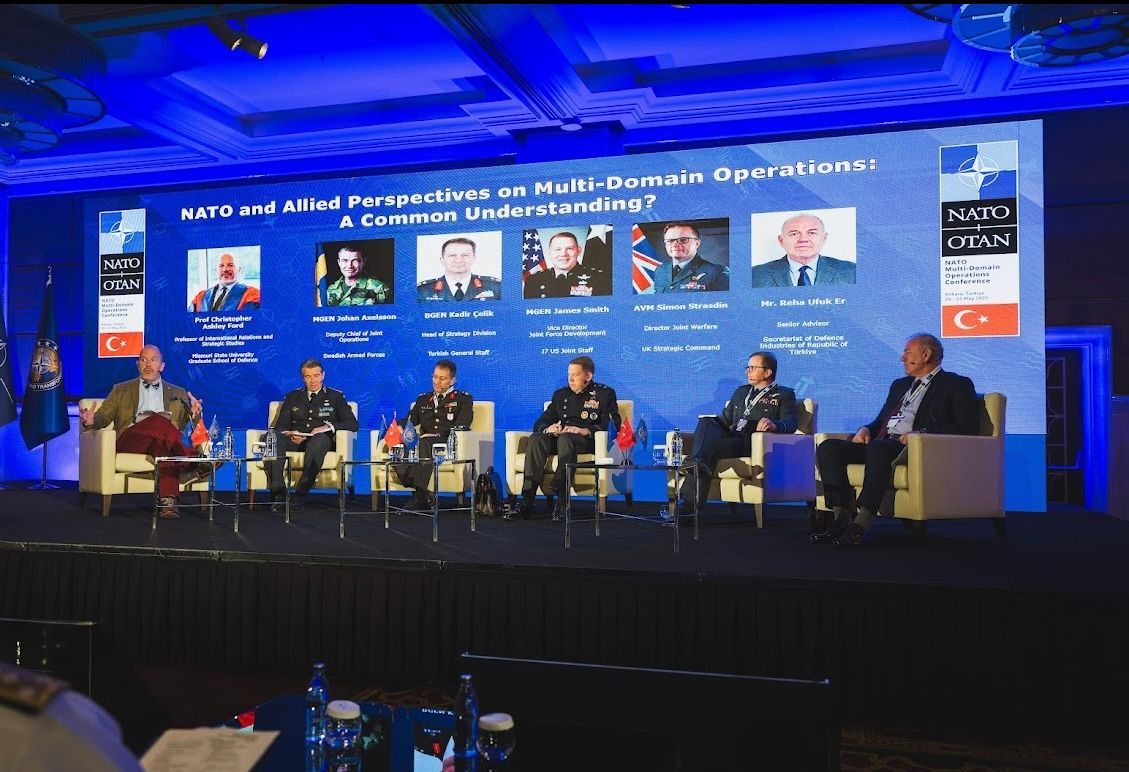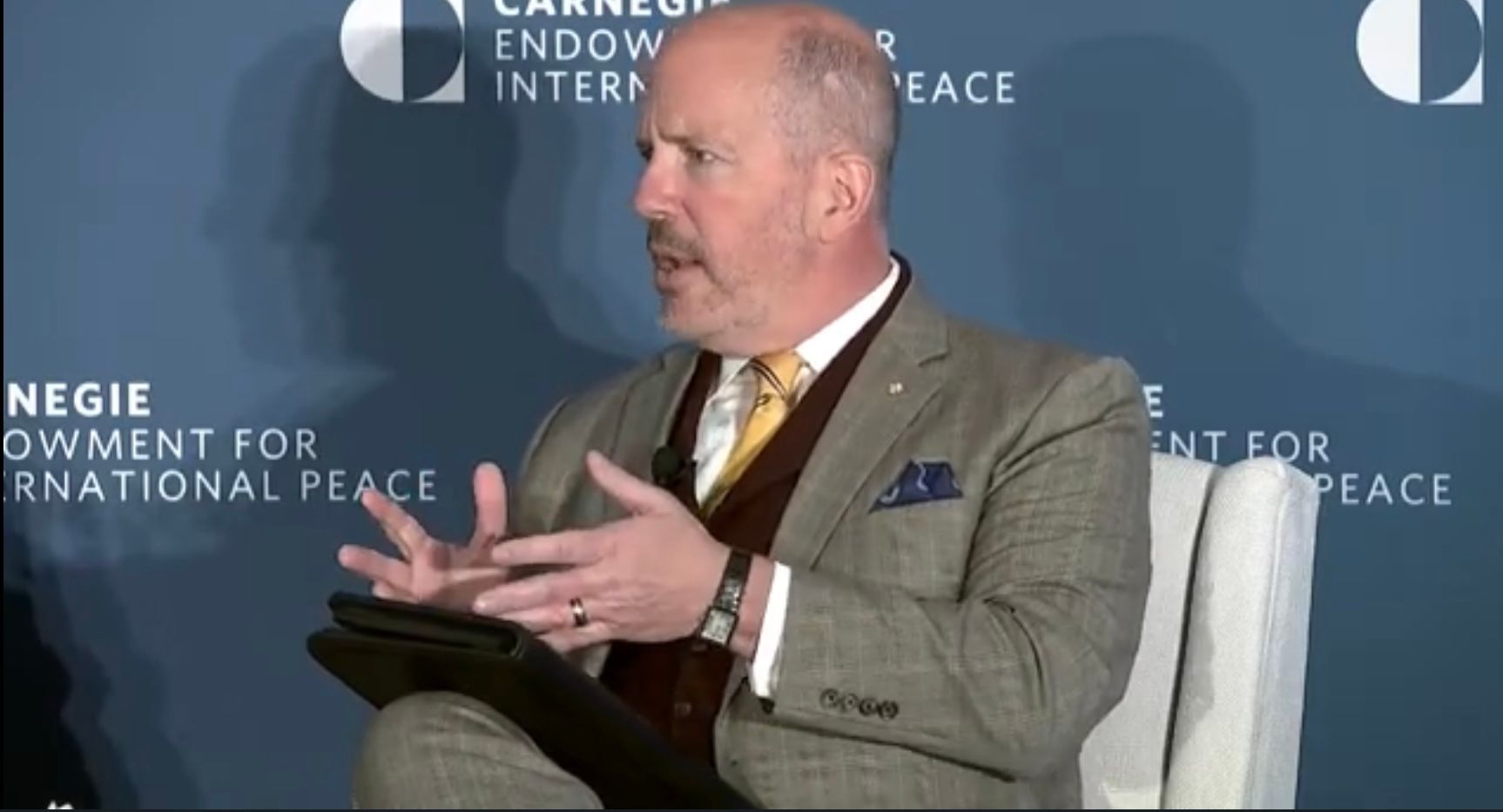Disarmament Versus Nonproliferation?
Note:
The text below was the basis for remarks Dr. Ford delivered at an event on October 28, 2010, sponsored by the Los Alamos National Laboratory and the Woodrow Wilson International Center for Scholars.
For those who are believers in what I call the “ credibility thesis ” – that is, the idea that a lack of progress in demonstrating disarmament “credibility” is the main “missing ingredient” that has helped ensure that the post-Cold War world has seen so little progress in preventing the proliferation of nuclear weapons – this must have been a disheartening year. To hear its adherents tell the story over the years, bringing great numbers of countries together in a strong united front against proliferation only awaited a long-overdue commitment by the nuclear weapons states, and above all, the United States, to move more rapidly to abolish nuclear weapons.
To be sure, I never thought the “credibility thesis” argument was very strong to begin with, in light of the fact that proliferation challenges have on the whole worsened over the last two decades, even while the arsenals of the nuclear superpowers have been plummeting. Nevertheless, it was frequently argued to me in my last government job – and has been asserted by officials from the Obama Administration, though less and less as time goes by – that a hearty re-endorsement of nuclear “zero” as the ultimate goal would do the trick: moving faster on disarmament was the key to getting nonproliferation under control.
Well, that was then and this is now. I won’t say that nothing has been done during the last two years on nonproliferation, for in some regards current policy is quite sound and represents, to its credit, more continuity than change. That said, however, the major points that are said to count as significant recent advances – the theatrics of the Nuclear Security Summit last spring, agreement upon a Final Document at the 2010 Review Conference of the Nuclear Nonproliferation Treaty (NPT), and the augmented sanctions now coming into force against Iran – don’t look much like we’re turning too much of a corner as a result of our disarmament-friendly rhetoric.
I. The Nuclear Security Summit
To be sure, I welcome the Nuclear Security Summit’s renewed public declarations in favor of securing unsafely stored nuclear material. These proclamations, however, amount to no more than governments’ commitments somehow to do better on their own. No one passed the hat for any serious sort of cooperative effort; countries are left on their own recognizance to come back in a couple of years and recount what they will no doubt describe as progress; the Summit’s much-vaunted four-year deadline is naively optimistic; and the entire effort went to great lengths to avoid what is in some respects the real long-term issue – namely, the continuing proliferation of fissile material production technology and indeed the ongoing creation of new material itself.
Marvelous work has been done over the years in securing nuclear materials in the Former Soviet Union under the Cooperative Threat Reduction (CTR) program, but compared to that vigor, the results of this year’s Summit look pale and anemic indeed. This year’s new pledges are welcome, but this is hardly a revolution, and it represents only an incremental step beyond what was already being done.
II. The NPT RevCon
To the extent that one values the mere fact of agreement upon some kind of final document at the NPT Review Conference (RevCon) as a victory in itself – a position which Obama Administration officials denied ahead of time, though they seem more sympathetic to the idea today – I suppose one could call the RevCon a nonproliferation victory. It may well be that the current additional emphasis given to disarmament in U.S. statements contributed to that agreement.
Yet for those of us more inclined to look to what countries actually do , the RevCon doesn’t seem to have made much of a difference. Truth be told, it must also be admitted that what was actually said in that Final Document was not particularly impressive to begin with. I appreciate the amusing argument now being made by U.S. diplomats that the Final Document represents a success in part because they kept worse things out of it, but that’s not too hard to do: it was a consensus document. (If merely keeping foolishness out of a RevCon final document is now to be the criterion for success, Obama Administration officials will need to revise their low opinion of the 2005 RevCon, for it produced no consensus document at all.)
In fact, even if mere statements and rhetoric are to be the yardstick of success after all, whatever of merit might be said to be in the Final Document must be set against what other governments themselves proclaimed as their beliefs and policies at that same Conference. In that regard, as I have outlined elsewhere, our disarmament push seems to have won us no real progress. Since the Final Document also managed artfully to avoid saying anything about the contemporary crisis over Iran that has most shaken the foundations of the nonproliferation regime, it is particularly hard to take it seriously as evidence of nonproliferation progress.
To be sure, the RevCon’s pronouncements do contain vague language about the importance of preventing proliferation, but the Final Document doesn’t really go beyond what was said on this score in the 2000 Final Document. Given all the accelerating proliferation problems of the intervening period, however, it is hard not to regard a repetition of such platitudes as hopelessly inadequate to current needs, even rhetorically.
(I have also heard Obama Administration officials praise themselves for making progress in building more support for a strong position against abusing the withdrawal provisions of the NPT by withdrawing after having been caught in violation. They deserve credit for pushing this. The reader should not forget, however, that this was a Bush Administration idea that also gained increasing support at the 2005 NPT RevCon and the 2007 and 2008 NPT Preparatory Committee meetings. Nor, for all our recent disarmament posturing, has this idea achieved consensus support even today.)
If anything, the 2010 RevCon Final Document is conspicuous in its substance less for anything to do with nonproliferation than for the rhetorical concessions the U.S. made on issues related to disarmament and the Middle East ( i.e. , Israel). Our agreement to its contents is thus an additional example of what we are willing preemptively to give in the hopes that our concessions will somehow, at some point, be repaid in the currency of nonproliferation rectitude. The Final Document is, in other words, an additional U.S. investment in the “credibility thesis” rather than an example of its validity.
III. Iran Sanctions
I am very much happier with the Iran sanctions that are coming into force. We don’t owe this to disarmament progress, however, but to Iran’s own intransigence and continued provocations. To all appearances, the new sanctions are indeed beginning to bite. This is good progress – building, it is worth noting, on the precedent of the Bush Administration’s Banco Delta Asia sanctions against North Korea, and implemented by some of the same hard-working officials – but as much as I applaud the current administration’s success in imposing additional penalties upon Iran, there is little sign that it is affecting Iran’s willingness to comply with its nonproliferation obligations.
More importantly from the perspective of evaluating the “credibility thesis,” however, we seem to owe our success in implementing these sanctions principally to the Iranians themselves. Does anyone think that we’d see these sanctions today had Iran not last year been revealed to be building yet another secret enrichment facility near Qom, had it not rejected the October 2009 deal for the international provision of more highly enriched uranium, had it not continued to spurn the generous diplomatic proposals of the “P5+1” group, and had its volatile president not continued to spout threatening venom at every opportunity?
For that matter, who really thinks we won Russian and Chinese support for the current round of Security Council sanctions by talking more warmly about nuclear weapons abolition – a scenario in which those governments seem to have no interest whatsoever, and may actually fear? If we “bought” their support with concessions elsewhere, we must have used some other currency.
IV. The Broader Picture
Meanwhile, unfortunately, Syria continues to stonewall the International Atomic Energy Agency (IAEA) in its efforts to investigate the North Korean-built plutonium production reactor destroyed in 2007, while North Korea’s own nuclear program continues entirely unchecked. (Indeed, Pyongyang conducted its second nuclear test last year.) Worrisome indications of the Burmese military junta’s interest in nuclear weaponry have surfaced, Russia has agreed to build a nuclear reactor in Venezuela (now that it has finished building one for Iran), and Pakistan is apparently now going to get a new Chinese nuclear reactor in violation of Nuclear Suppliers Group rules.
Other countries are refusing to follow the model of the no-fissile-material-production pledge made by the United Arab Emirates to the Bush Administration , and Saudi Arabia has said that it now desires an enrichment capability. For its part, Egypt has been revealed to have had safeguards problems on account of undeclared work on uranium and the unexplained presence of highly-enriched uranium particles – and today talks with remarkable candor of how Iran’s development of nuclear weapons could help lead it and other Arab governments to reevaluate their commitment to the NPT.
So there is much to worry about on the nonproliferation front, and things are not precisely improving notwithstanding the president’s soaring rhetoric in Prague in 2009 and his Nobel Peace Prize for committing to nuclear “zero.” Don’t get me wrong: my point is not to complain that the Obama Administration hasn’t “solved” all of today’s proliferation problems. (After all, the Bush Administration didn’t solve all of them either, and it had eight years.) Instead, my point is that they seem spectacularly unaffected by Washington’s Prague-era disarmament posturing.
V. Appeasable? Or Not?
There will surely be those who will argue that the credibility thesis has yet truly to be tested – that is, who will chalk up the world’s failure to unite in solving all these problems to our failure to do more, and more quickly, in moving toward “zero.” A global united front in support of vigorous nonproliferation would really have materialized, it will be said, if we had only done more to disarm .
This counterfactual argument for disarmament absolutism, of course, is essentially unfalsifiable – and thus intellectually dishonest – because unless and until we are actually at “zero,” it will always be possible to try to blame continuing problems on our not being quite there. Indeed, as we have seen with the enormous nuclear reductions undertaken to date, it will no doubt remain possible for the absolutists to argue – as I have heard from senior foreign diplomats such as Sergio Duarte of Brazil and Abdul Minty of South Africa – that the anticipated nonproliferation benefits from our nuclear cuts haven’t materialized because we allegedly didn’t make these cuts for the right reasons, or with the correct frame of mind. Promises of future nonproliferation cooperation on the basis of this sort of demand are clearly crafted in order to ensure that their makers will always have a way to avoid making good on them.
VI. An Oddly Optimistic Note
But perhaps one can take heart from my conclusion that there is not the kind of connection between disarmament progress and nonproliferation progress that many critics of U.S. policy – and its current practitioners – have long asserted. For one must concede that the disarmers have something of a point, by their lights at least, that the U.S. has not moved heaven and earth to meet their demands.
Believe it or not, I spend a fair amount of time hanging out with nuclear disarmament activists, and it is hard to miss their sense of disappointment in the Obama Administration. To be sure, more thoughtful members of the disarmament community – among them the Arms Control Association’s Daryl Kimball – still defend the president’s approach. Significantly, however, Kimball points more to Obama’s impact upon broader disarmament and nonproliferation debates than to the president’s concrete accomplishments in ridding the world of nuclear weapons, and he argues that it is somehow really up to Congress to do more. (I’ll leave aside the fact that Congress has been controlled by supermajorities of President Obama’s Democrat allies.) “Transformative” results seem curiously hard to identify beyond disarmament rhetoric.
Many others in the disarmament community appear more openly unhappy with all that has not changed in U.S. nuclear policy. In a dynamic that has remarkable parallels in U.S. domestic and economic policy in this election season, some of the truest of the True Believers in the disarmament world seem demoralized and disheartened that this long-awaited and perhaps fleeting chance “ to get some runs on the board ” for disarmament has produced so few results. For them, the great hopes raised by the president’s Prague speech of April 2009 have been succeeded by long months of disappointment with the current administration. In their eyes, President Obama is turning out, on nuclear matters, to be little more than a sort of “Bush Lite” president, albeit one wrapped in pleasing disarmament-friendly rhetoric.
(Some erstwhile supporters in the disarmament world apparently remain devoted to the idea of Obama, however. I have seen some of them resorting to a sort of “good-Tsar/bad-minister” theory, by which a well-meaning president has had implementation of his noble policy hijacked by malevolent elements of the military-industrial complex. Even among such exoneration theorists, however, there is a palpable frustration with how much continuity there has been in U.S. nuclear policy.)
In this respect, the disarmers’ complaint is not one that I share – or at least, to the extent that the disarmers make a valid point about the surprising degree of continuity in U.S. strategic policy, I do not view this as something to complain about. It must be admitted, however, that from the perspective of the disarmament community, the last two years haven’t quite turned out as planned.
The United States has signed a new strategic treaty with Russia, but it entails only minor or notional reductions, and ends up with operationally deployed warhead numbers consistent with comments coming out of the Pentagon at the end of the Bush Administration and only slightly below the bottom end of the range band set by Bush’s Moscow Treaty of 2002. And even this modest treaty is nonetheless bogged down – in a Senate that seems likely next week to become much more hawkish – on account of its potential impact upon missile defense and conventional global strike programs, and because the administration seems unwilling actually to commit to serious out-year funding for the nuclear modernization program it claims to support. No one thinks that the long-promised “next step” in Russo-American negotiations will be anything but vastly more difficult, if indeed it proves possible at all.
The 2010 Nuclear Posture Review Report (NPR) says more about disarmament than ever before, but the administration has also recommitted to modernizing America’s shrinking nuclear weapons infrastructure (and under the same leader President Bush chose to supervise this process). We are also continuing ballistic missile defense development, pressing NATO into territorial missile defense, pursuing life extension programs for U.S. nuclear weapons, continuing to develop new prompt-strike technology, keeping U.S. non-strategic nuclear weapons in Europe, and exploring follow-on strategic delivery systems. The new NPR even sets out its standard for permissible improvements to U.S. nuclear weapons designs in terms that seem crafted in order to permit de facto resurrection of the “reliable replacement warhead” concept promoted by the Bush Administration. [Readers may wish to consult my issue-by-issue look through the new NPR that appeared earlier on this website. ]
We have modified our declaratory policy – a little – but have rejected calls to adopt a “no first use” policy and to declare that the only use of nuclear weapons is to deter other such weapons, and we have rejected nuclear force “de-alerting.” U.S. diplomats also remain “resolutely negative” on the idea of a Nuclear Weapons Convention, on the articulation of disarmament timelines, and on developing a global and legally-binding set of “negative security assurances.” We re-support a Fissile Material Cutoff Treaty (FMCT) on Clinton-era terms, but our flexibility has not broken the impasse at the long-paralyzed Conference on Disarmament in Geneva. Meanwhile, the Comprehensive Test Ban Treaty (CTBT) seems unlikely either to be ratified by the Senate or to come into force even if it were.
All of these facts seem to make the disarmers very glum indeed, and will no doubt fuel accusations that serious multinational nonproliferation cooperation would have been possible if only the United States had actually done what President Obama led everyone, including the Nobel Committee, to expect of him. From my perspective, however, I am actually encouraged – both by the degree of moderation shown by the administration and by the likelihood that the “credibility thesis” was an illusion in the first place.
In my view, to borrow a phrase from the late paleontologist Stephen Jay Gould, disarmament and nonproliferation are “ nonoverlapping magisteria” to a degree notably greater than one might expect from listening to the disarmament diplomats. (I do not say that these issues are irrelevant to each other, nor that any serious chance for disarmament does not depend critically upon reliable nonproliferation. My point is merely that disarmament progress is apparently not the key to nonproliferation progress.) This is probably not a bad thing, because if disarmament posturing was never the way to “round the corner” on nonproliferation cooperation to begin with, we need not worry too much now about imperiling such cooperation it by insisting upon a prudent and sensible security posture.
All of which leaves me more hopeful than you might expect given the grim proliferation trends that we still face. In responding to those trends, I would suggest, we already know what we need to do. We should wean ourselves from too-clever-by-half schemes that pretend to offer miraculous solutions – notably, the promise that “it will be alright if we just disarm faster” – and we should re commit ourselves to the hard, ongoing slog of working with every tool available to prevent proliferation, little bit by little bit, every day, for the indefinite future. There is no “silver bullet” solution: such promises are illusory, and can indeed do harm by distracting from the hard work we need to do.
The basic things we need to keep doing – if perhaps even more vigorously – are for the most part things on which the United States is already working, and has been for years. The “basics” to which we need to return our focus are components of longstanding U.S. policy that all administrations have pursued (albeit to varying degrees and with varying emphases) since the end of the Cold War.
We need to restrict the spread of dual-use proliferation-facilitating technologies, improve and properly fund nuclear safeguards, stop proliferation transfers, help secure nuclear materials worldwide, insist upon rigorous nonproliferation compliance and ensure the swift and painful imposition of severe penalties upon those who violate their nonproliferation obligations, and work to deny proliferators whatever strategic gains they may hope to win by the development of nuclear weapons.
These are the basic sinews of an enduring American nonproliferation policy – not a partisan, or idiosyncratically presidential one – and they form a path along which we must work diligently and persistently to lead the international community.
-- Christopher Ford








